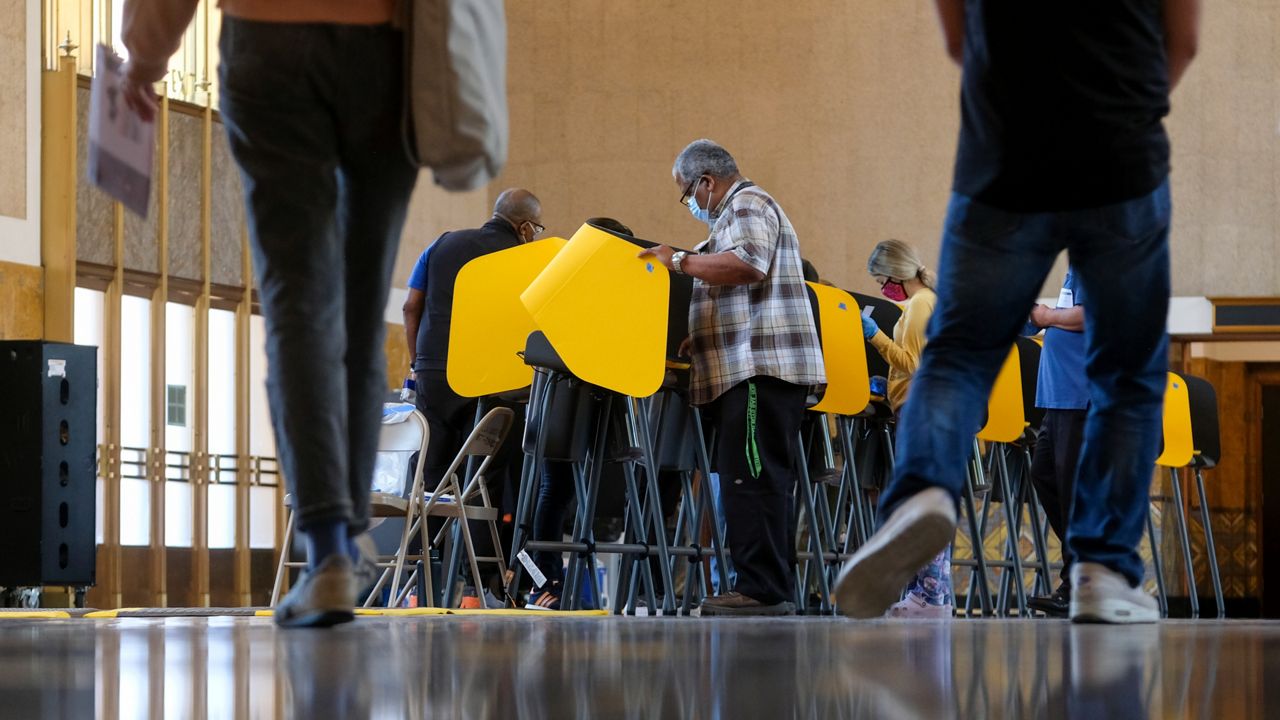CALIFORNIA — Now that the recall election is in the books, with Gov. Gavin Newsom surviving an expensive and drawn-out effort to oust him, the majority of California voters in a new poll say the recall process is in need of reform.
“There’s been a lot of discussion in California throughout this campaign that the recall election process needs to be examined, and it probably will be in the post-election period,” said Mark DiCamillo, director of the Berkeley IGS poll conducted Aug. 30 through Sept. 6 among 9,809 registered voters in the state.
While 75% of voters described the recall provision as “a good thing,” the poll also found varying degrees of support for five specific proposals to reform it, often along party lines.
The reform proposal that drew the most bipartisan support called for a runoff election if none of the replacement candidates received 50% of the vote and the officeholder was removed from office. Sixty-nine percent of all voters approved of such a reform, including 75% of Democrats, 64% of No Party Preference and 41% of Republicans.
“That’s done quite often in other elections around California, so it’s something that’s very familiar to voters and seems reasonable to a large chunk of voters,” DiCamillo said, adding that it drew the highest support from Republican voters of the five proposals.
As a whole, however, Republican voters were “much less likely to support any of these reforms,” he said. While three other reforms received majority approval from California voters, support and disapproval was much more polarized.
Overall, 59% of voters favored toughening the rules that apply to recalling state-elected officials so that officeholders can only be recalled for cause, such as when an officeholder is found to have carried out illegal or unethical conduct; 29% opposed such a reform. While 78% of Democrats favored the idea, 61% of Republicans opposed it.
Among all voters, 55% favored increasing the number of signatures required for a recall election to qualify for the ballot from 12% of the total votes cast in the latest statewide election to 25%; 30% opposed the idea. Seventy-seven percent of Democrats favored the idea, and 70% of Republicans opposed it.
Fifty-one percent of voters favored making it more difficult for candidates to run in a gubernatorial replacement election by requiring them to meet a higher threshold than the current $4,000 filing fee and the 7,000 voter-signature threshold that is now in place; 32% opposed such a reform. Sixty-five percent of Democrats favored the idea, while 31% of Republicans opposed it.
“The reason why Republicans are mostly opposed to reforming the process is because most of these reforms would make it more difficult to qualify something for the ballot,” DiCamillo said, noting that Republican opposition is “born out of the fact that they’re realizing they are clearly the minority party in California.”
The last time a Republican presidential candidate carried the state was in 1988, when 51.1% of California voters supported George H.W. Bush. The last time voters approved a Republican governor was in 2003, when voters recalled Gov. Gray Davis and replaced him with Arnold Schwarzenegger.
Since 2017, the share of registered voters who are Democrats has increased from 44.8% to 46.5%, according to the Public Policy Institute of California. The share of Republicans has declined from 25.9% to 24.1%. While the voters who say they are No Party Preference is largely unchanged at 23.3%, in 2021, 52% of independent likely voters lean Democratic compared with 43% in 2017.
For Republicans, the recall process is a way to take power away from the Democratic party, DiCamillo said. “That's the main motivating factor behind their resistance to making changes to the recall. They look at this as an opportunity, and if you make it more difficult, they don't think it would be to their benefit.”
Democrats, DiCamillo said, have the opposite perspective. “They look to the recall and say this is a way to undo elections. The Democrats basically control statewide elections, and the recall is a back-door way of getting rid of a Democratic officeholder.”
The most divided of the proposed reforms on the Berkeley IGS poll was about allowing an officeholder facing recall to also be included among the candidates in the replacement election. Overall, 42% of voters approved of the idea, 35% opposed it and 23% were undecided.



